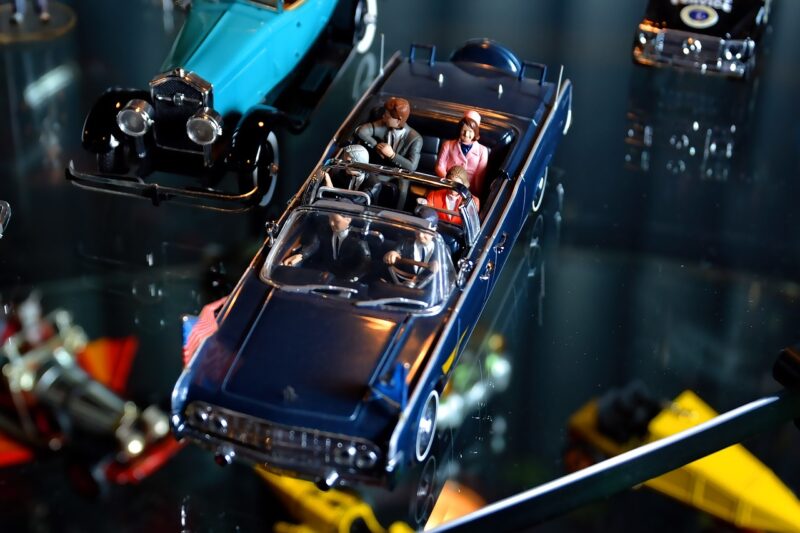The Day JFK Was Assassinated: Theories, Evidence, and Questions That Remain
November 15, 2024

On November 22, 1963, President John F. Kennedy was assassinated while riding in a motorcade in Dallas, Texas. The event not only shocked the nation but also transformed American politics and culture. Over the decades, numerous theories have emerged regarding the circumstances surrounding his death, prompting debates that continue to this day. In this article, we will explore the events of that fateful day, the various theories and evidence presented over the years, and the unanswered questions that still fuel discussions.
### 1. The Events of November 22, 1963
The assassination occurred as President Kennedy was traveling through Dealey Plaza in Dallas. Riding in a convertible with First Lady Jacqueline Kennedy, Texas Governor John Connally, and Connally’s wife, Nellie, the President was shot at approximately 12:30 PM.
Witnesses reported hearing gunfire and observing the immediate chaos that ensued. Within minutes, Kennedy was rushed to Parkland Memorial Hospital but was declared dead at 1:00 PM. The official cause of death was determined to be a gunshot wound to the head.
Despite the swift response to the incident, the questions about the motives and resources behind the assassination began almost immediately. Lee Harvey Oswald, who was arrested later that day, was charged with the murder, but many believed that there was more to the story than a lone gunman.
### 2. Lee Harvey Oswald: The Lone Gunman Theory
The Warren Commission, established by President Lyndon B. Johnson in 1964, concluded that Lee Harvey Oswald acted alone in assassinating JFK. Key points of their findings included:
– **Oswald’s Background**: A former Marine with a history of Marxist beliefs, Oswald’s motivations were speculated to be tied to his political ideology and a desire for notoriety.
– **Ballistics Evidence**: The Commission asserted that three shots fired from the sixth floor of the Texas School Book Depository hit Kennedy, with one bullet also injuring Governor Connally.
– **Eyewitness Testimonies**: Numerous witnesses cited hearing only three shots, and Oswald’s palm print was found on the rifle used.
While the lone gunman theory was widely accepted, many critics of the Warren Report arose, suggesting that evidence supporting Oswald’s guilt was not as clear-cut as presented.
### 3. Theories Beyond the Lone Gunman
Numerous conspiracy theories have emerged over the years, creating a tapestry of speculation that challenges the findings of the Warren Commission. Some notable theories include:
#### A. The Mafia Involvement
Some theorists suggest that organized crime had a hand in the assassination. Motivations cited include Kennedy’s crackdown on organized crime and his administration’s push to dismantle mafia networks. Ensuing claims from former mobsters asserted that they had hired Oswald or were somehow complicit in the shooting.
#### B. CIA and Government Conspiracy
Another prominent theory posits that the Central Intelligence Agency (CIA) orchestrated the assassination due to Kennedy’s perceived reluctance to escalate the Cold War and his handling of strategic affairs like the Bay of Pigs incident. This theory raises questions about whether rogue elements within the government took matters into their own hands.
#### C. Anti-Castro Cubans
Kennedy’s policies toward Cuba, especially his attempts to reconcile relations after the Cuban Missile Crisis, prompted allegations that anti-Castro groups conspired to assassinate him. This theory revolves around the idea that these groups considered Kennedy too soft on Castro and wanted to eliminate him.
#### D. The Vice President’s Involvement
Some theories have even suggested that Vice President Lyndon B. Johnson had a role in the assassination, as there were alleged political ambitions driving him. They speculate that he either orchestrated, facilitated, or capitalized on the event to further his political career.
### 4. The Fallout and Continuing Investigation
The assassination of JFK prompted an immediate and ongoing examination of American security, intelligence, and the political landscape. Following the event, there was a significant rise in skepticism towards government narratives, transforming how citizens perceived their leaders.
In the decades following the assassination, various investigations, books, and documentaries have attempted to peel back layers of mystery surrounding the events of that day. Notably, the House Select Committee on Assassinations (HSCA) was established in the late 1970s to investigate the assassination further. Their findings concluded that JFK was likely assassinated as a result of a conspiracy, though definitive proof was lacking.
Numerous public figures, films, and literature have kept the intrigue alive, leading to enduring questions such as:
– **Who else may have been involved in the assassination?**
– **What really happened in Dealey Plaza that day?**
– **Have we seen all the evidence, or even just part of it?**
These questions remain a source of fascination, captivating historians, investigators, and the general public alike.
### 5. The Legacy of JFK’s Assassination
Regardless of the theories put forth, the assassination of John F. Kennedy has shaped the political landscape of America profoundly. It instigated a new era of media scrutiny, questioning authority, and the never-ending quest for truth. The event forced America to confront its vulnerabilities, leading to a deep-seated skepticism of government narratives.
The continuing interest in JFK’s assassination reflects the power of historical events to shape societal narratives. Books such as “On the Trail of the Assassins” by Jim Garrison, and films like Oliver Stone’s “JFK,” have contributed to keeping public interest alive, while also creating further speculation.
### Conclusion
The day John F. Kennedy was assassinated marks a moment frozen in time, altering the trajectory of American history. Even today, theory, evidence, and speculation continue to swirl around the event, and the unanswered questions demand attention and inquiry. As historians and theorists delve deeper, it becomes clear that understanding JFK’s assassination might just be the key to understanding the complexities of American politics in the 20th century and beyond. The quest for answers may always remain, but the memory of JFK lives on as a perpetual reminder of the fragility of leadership and the quest for truth in the face of uncertainty.








